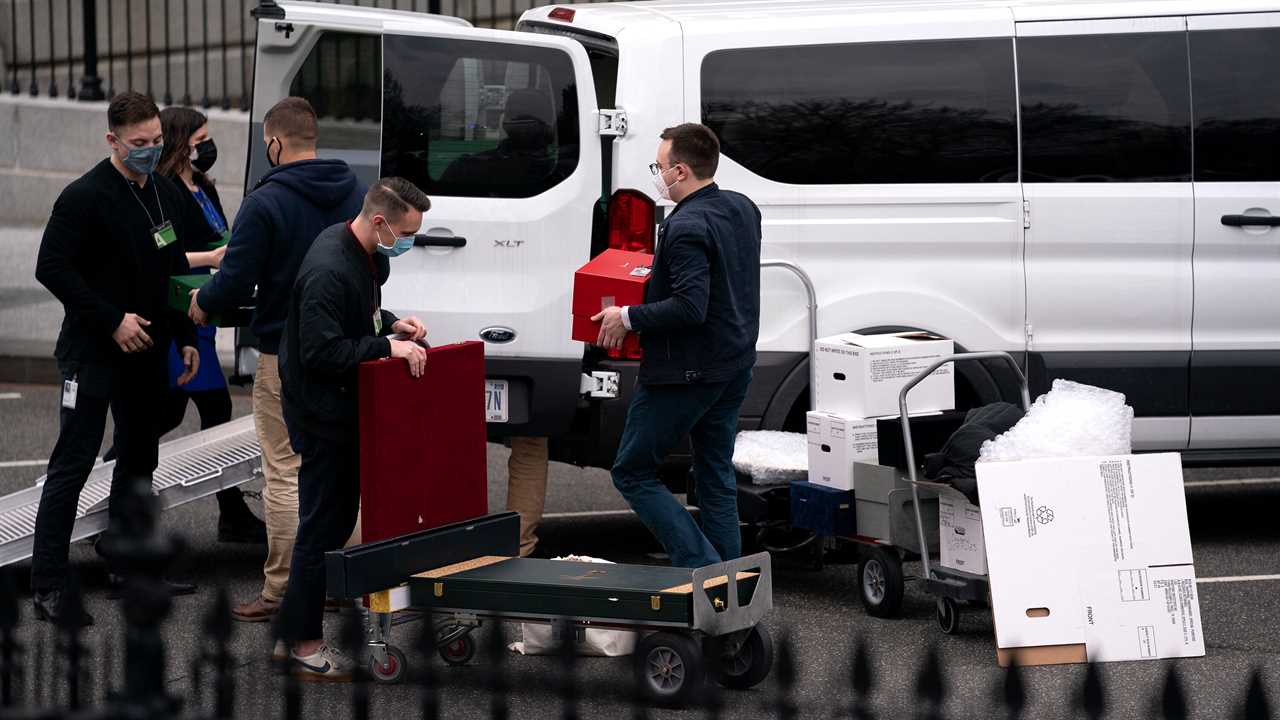
The National Archives and Records Administration discovered what it believed was classified information in documents Donald J. Trump had taken with him from the White House as he left office, according to a person briefed on the matter.
The discovery, which occurred after Mr. Trump returned 15 boxes of documents to the government last month, prompted the National Archives to reach out to the Justice Department for guidance, the person said. The department told the National Archives to have its inspector general examine the matter, the person said.
It is unclear what the inspector general has done since then, in particular, whether the inspector general has referred the matter to the Justice Department.
An inspector general is required to alert the Justice Department to the discovery of any classified materials that were found outside authorized government channels.
Making a referral to the Justice Department would put senior officials in the position of having to decide whether to open an investigation, a scenario that would thrust the department into a highly contentious political matter.
The Washington Post reported on Wednesday that the National Archives had asked the Justice Department to examine Mr. Trump’s handling of White House records.
Officials with the National Archives did not respond to messages seeking comment.
In January, after a lengthy back and forth between Mr. Trump’s lawyers and the National Archives, Mr. Trump handed over more than a dozen boxes of materials, including documents, mementos, gifts and letters. Among the documents were the original versions of a letter that former President Barack Obama had left for Mr. Trump when he was first sworn in, and letters written to Mr. Trump by the North Korean leader, Kim Jong-un.
Also included in the boxes was a map Mr. Trump famously drew on with a black Sharpie to demonstrate the track of Hurricane Dorian heading toward Alabama in 2019 to back up a declaration he had made on Twitter that contradicted weather forecasts.
The boxes had originally been sent to Mar-a-Lago from the White House residence, where a range of items — including clothes — were hastily packed up in Mr. Trump’s final days in office. Legally, Mr. Trump was required to leave the documents, letters and gifts in the custody of the federal government so the National Archives could store them.
After the F.B.I., during the 2016 presidential campaign, investigated Hillary Clinton’s handling of classified material while she was secretary of state, Mr. Trump assailed her, helping make the issue pivotal in the outcome of that race. In that case, the intelligence community’s inspector general had made a national security referral to the F.B.I., prompting the investigation of Mrs. Clinton.
But during Mr. Trump’s administration, top White House officials were deeply concerned about how little regard Mr. Trump showed for sensitive national security materials. John F. Kelly, the White House chief of staff, tried to stop classified documents from being taken out of the Oval Office and brought up to the residence because he was concerned about what Mr. Trump may do with them and how that may jeopardize national security.
Similar to Mrs. Clinton, Mr. Trump’s son-in-law, Jared Kushner, and daughter Ivanka used personal email accounts for work purposes. And even after being warned by aides, Mr. Trump repeatedly ripped up government documents that had to be taped back together to prevent him from being accused of destroying federal property.
Now Mr. Trump faces questions about his handling of classified information — a question that is complicated because as president he had the authority to declassify any government information. It is unclear whether Mr. Trump had declassified materials the National Archives discovered in the boxes before he left office. Under federal law, he no longer maintains the ability to declassify documents after leaving office.
He invoked the power to declassify information several times as his administration publicly released materials that helped him politically, particularly on issues like the investigation into his campaign’s ties to Russia.
Toward the end of the administration, Mr. Trump ripped pictures that intrigued him out of the President’s Daily Brief — a compendium of often classified information about potential national security threats — but it is unclear whether he took them to the residence with him. In one prominent example of how he dealt with classified material, Mr. Trump in 2019 took a highly classified spy satellite image of an Iranian missile launch site, declassified it and then released the photo on Twitter.
If Mr. Trump was found to have taken materials with him that were still classified at the time he left the White House, prosecuting him would be extremely difficult and it would pit the Justice Department against Mr. Trump at a time when Attorney General Merrick B. Garland is trying to depoliticize the department.
The department and the F.B.I. also still have significant scars from its investigation into whether Mrs. Clinton mishandled classified information, as the bureau was accused of unfairly tarnishing her and interfering in the 2016 election.
Katie Benner, Julian Barnes and Maggie Haberman contributed reporting.
Did you miss our previous article...
https://trendinginthenews.com/usa-politics/mcconnell-blasts-rnc-resolution-calling-jan-6-violent-insurrection






